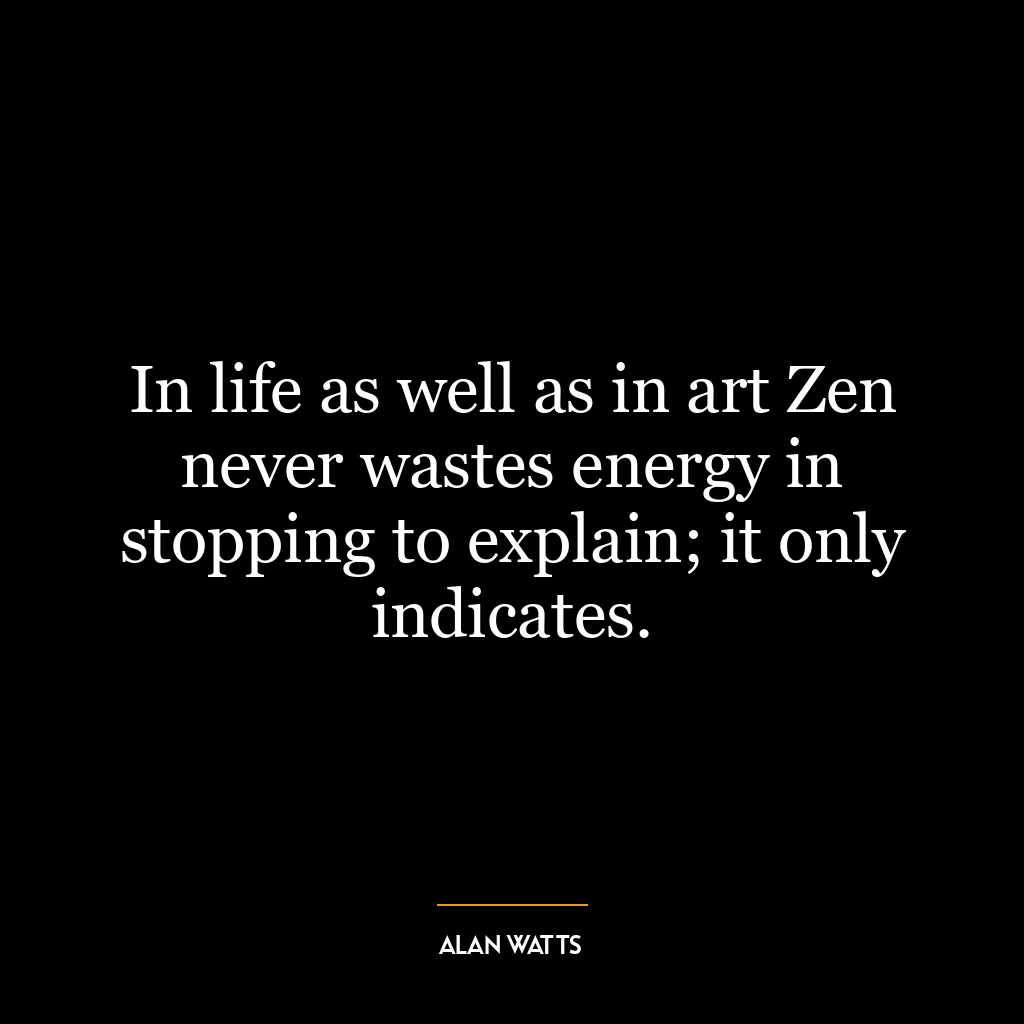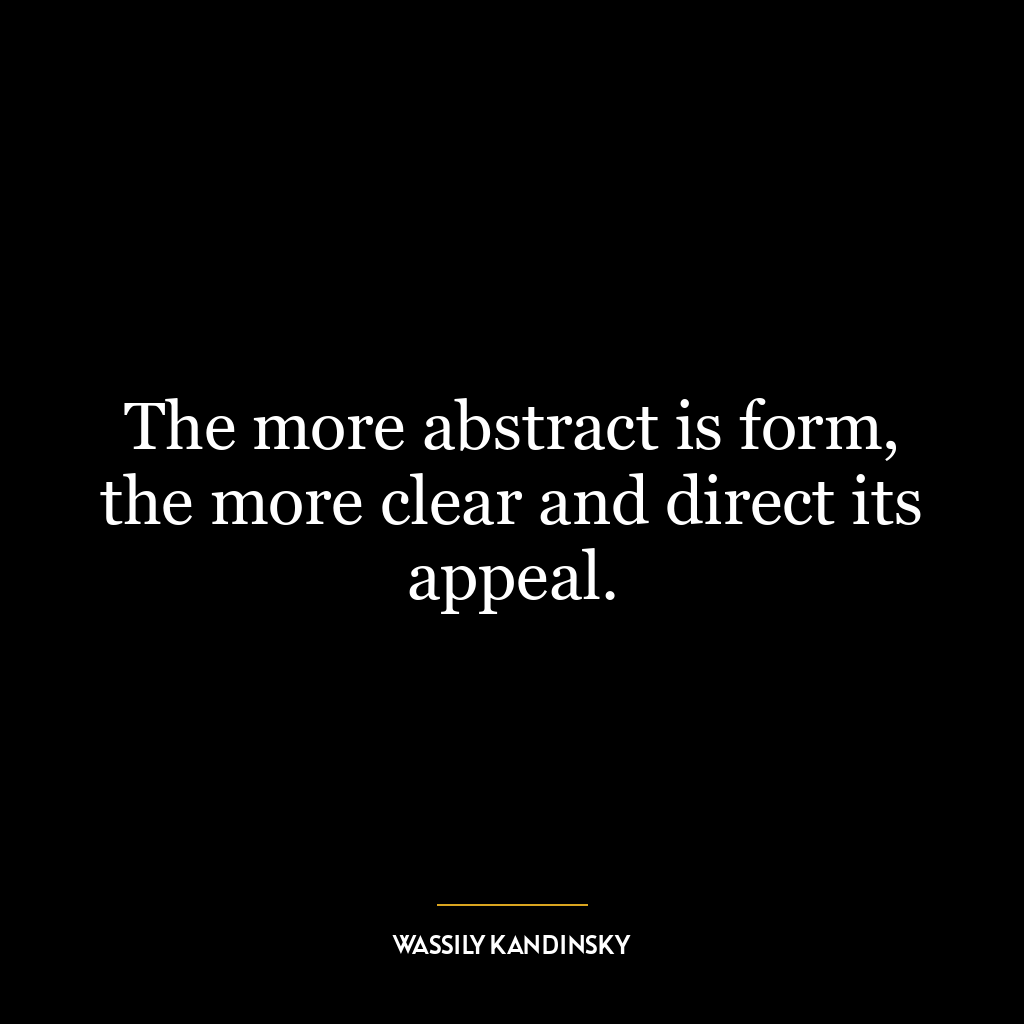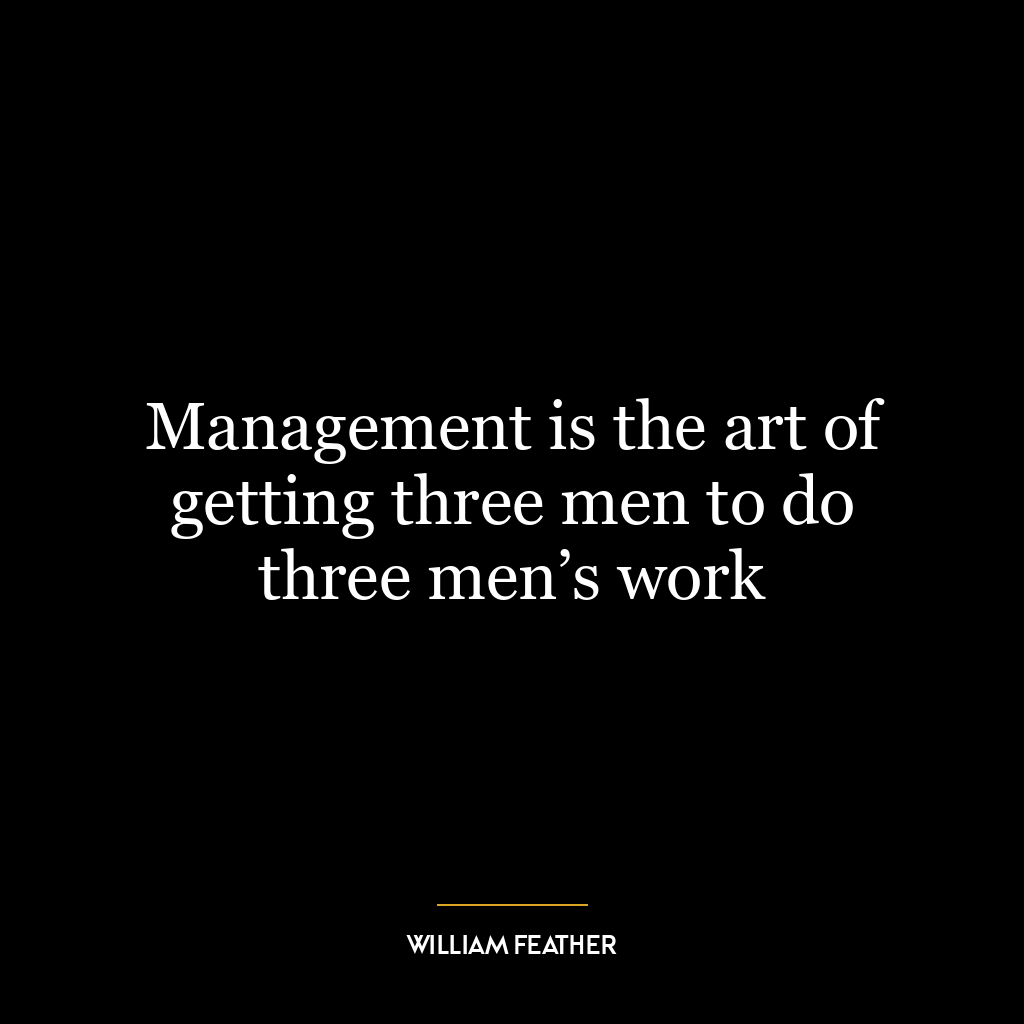This quote essentially conveys that Zen, both as a philosophy and as a practice, is about experiencing life directly and intuitively, rather than trying to intellectualize or rationalize it. In other words, Zen doesn’t stop to explain or analyze, but simply points towards the truth, inviting us to perceive and understand it in our own unique way. This is similar to how art often communicates complex emotions or ideas without explicitly explaining them, leaving the interpretation up to the viewer.
In the context of personal development, this quote could be interpreted as a reminder to live more in the moment and to trust our instincts. Often, we spend so much time trying to understand or explain our feelings, actions or decisions that we miss out on the experience itself. By focusing less on analysis and more on direct experience, we can become more in tune with our true selves and the world around us.
In today’s fast-paced, information-driven world, this idea is particularly relevant. We are constantly bombarded with data and explanations, which can sometimes overwhelm us and disconnect us from our own experiences. By adopting a Zen-like approach, we can learn to filter out the noise and focus on what truly matters, leading to a more balanced and fulfilling life.
In addition, the quote suggests that Zen and art do not waste energy – an idea that can be applied to our personal and professional lives. By not wasting energy on over-explaining or over-analyzing, we can direct our energy towards more productive and meaningful pursuits. This can lead to increased efficiency, creativity, and overall well-being.















